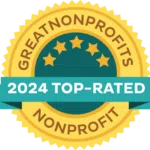Post-Infectious Conditions Require Knowledge Management
Authors:
Helga Hagman , MD, specialist in oncology; chief physician at Skåne’s oncology clinic
Lisa Norén , specialist in general medicine, Stockholm
Sofia Breland , specialist in general medicine, Region Halland
Jonas Bergquist , MD, professor, Research Center for ME/CFS, analytical chemistry and neurochemistry, Biomedical Center, Uppsala University
PUBLISHED: 2022-09-16
Read the original publication in Swedish.
The risk of long-term severe disability after covid-19 infection has not received enough attention in Sweden despite the ongoing spread of infection. Postcovid, or with an international term PACS (postacute covid-19 syndrome), is a global public health problem [1, 2]. Almost all age groups are affected, and current vaccines do not eliminate the risk of post-covid [3]. At the same time, learning centers that have been built up in healthcare are being shut down [4], and the value of diagnostics and highly specialized care is being questioned [5-7].
The Riksdag has recently approved a motion to establish a national knowledge center for ME/CFS, but a corresponding one for post-covid is rejected [8]. It is high time to give the knowledge management of these nearby post-infectious syndromes a necessary joint boost.
In the 1850s, Ignaz Semmelweis, the father of healthcare hygiene, struggled to reject humoral pathology. In an article in Läkartidningen [9], the author of the article describes the fear of mortality in childbed fever at the time, and how the outside world contributed to overturning Semmelweis’ theory. However, Semmelweis tested his hypotheses systematically until the experimental hand disinfection lowered the mortality rate, but despite the progress he was working against the wind.
In the absence of evidence for pathophysiological processes, severe symptoms are questioned even today as social contagion [2, 5, 6]. The Nobel celebration reminds us annually of all the knowledge that remains to be discovered. At the same time, the post-covid pandemic seems to be left in the somatoform shame corner: Why? Could it, as the author of the column in Läkartidningen reasons [9], be due to a non-constructive skepticism within the profession, and the complacency that exists in every knowledge society where you defend the established and make the new suspect? In that case, let’s avoid this.
Claiming that postcovid and dysautonomia cannot possibly have a somatic basis [6], by referring to the large amount of reports of multifaceted symptoms (including anxiety), is as wrong as claiming that cancer cannot give rise to a varied symptom picture. Just as in cancer care, we must instead, through biomarker research and studies of subgroups, carve out subdiagnoses that have different genesis, prognosis and treatment strategies.
Building evidence-based multidisciplinary care requires nationally coordinated professions. Here we can learn from history and be inspired by the progress of cancer care. Symptom focus, anxiety or illness identity can certainly be obstacles for the individual to live as healthy a life as possible [10]. It also happens in cancer, but without us drawing the conclusion that investigation makes people sicker or that research and patient associations are evil [6]. The risk of misdiagnosing post-covid should, however, in this context be considered small in relation to the risk of not offering adequate care to seriously ill patients.
Thanks to advances in proteomics and genomics, precision medicine is now at the heart of the care of rare inherited diagnoses and cancer. The Covid-19 pandemic will in all likelihood drive a knowledge revolution in immunology and metabolomics. Within the field of cancer, there are now methods for measuring cancer activity via cell-free DNA in the blood of a patient whom we would today declare cancer-free [11]. However, the test is not in clinical use. Methods that can identify biomarkers for postcovid are also not yet available [12].
It is our duty to drive translational development »from bench to bedside« and from mistrust to curiosity. This requires highly specialized diagnostics and multidisciplinary expertise – including general medicine.
The pathophysiology behind the postviral umbrella syndrome PACS is complex, and elucidation has only just begun [13]. It is now up to healthcare actors – healthcare providers, researchers and regional healthcare politicians – to act for national cooperation for equal and first-class care in post-infectious disease conditions, which unfortunately risk being referred to the group of public diseases.
Potential ties or relationships: Jonas Bergquist is »chief medical officer« for the Open Medicine Foundation.
REFERENCES
- World Health Organization (WHO). A clinical case definition of post COVID-19 condition by a Delphi consensus. 6 okt 2021.
- Kungliga Vetenskapsakademien. Postakut covid-19-syndrom – långtidskomplikationer av covid-19. 27 apr 2021.
- Al-Aly Z, Bowe B, Xie Y. Long COVID after breakthrough SARS-CoV-2 infection. Nat Med. 2022;28(7):1461-7.
- Sahlgrenskaliv. »Vi ska göra det vi är bäst på«. 27 jul 2022.
- Kjöller H. Samma symtom har i olika tider fått olika namn – nu talar vi om post covid [ledare]. Dagens Nyheter. 21 jul 2022.
- Kjöller H. Postcovid: samma symtom i ny förpackning. Kvartal. 6 dec 2021.
- Gyll D, Sjöström C. Låt postcovid bli startskottet för ett biopsykosocialt kunskapslyft. Läkartidningen. 26 feb 2021.
- Motion 2021/22:3697. Waltersson Grönvall C (M), et al. En forskningsinriktad hälso- och sjukvård för drabbade av postcovid.
- Lagercrantz G. Omvärlden och personligheten stjälpte Semmelweis’ vetenskapsteori. Läkartidningen. 2007;104:1619-21.
- Viklund Georges M, Happstadius K, Kadowaki Å. Det är både och: Fallbeskrivning av långdragna postinfektiösa symtom efter covidinfektion och utvecklandet av ångestsyndrom. Om diagnostik, behandling, uppföljning och förnyad diagnostik när patienten inte blir bättre. Allmänmedicin. 2022;(2):32-5.
- Merk C, Martling A, Lindberg J, et al. Circulating tumor DNA (ctDNA) in adjuvant therapy of early stage colon cancer: current status and future perspectives. Acta Oncol. 2022;61(4):523-30.
- Pretorius E, Vlok M, Venter C, et al. Persistent clotting protein pathology in long COVID/post-acute sequelae of COVID-19 (PASC) is accompanied by increased levels of antiplasmin. Cardiovasc Diabetol. 2021;20(1):(172).
- Brodin P, Casari G, Townsend L, et al; COVID Human Genetic Effort. Studying severe long COVID to understand post-infectious disorders beyond COVID-19. Nat Med. 2022;28(5):879-82.


